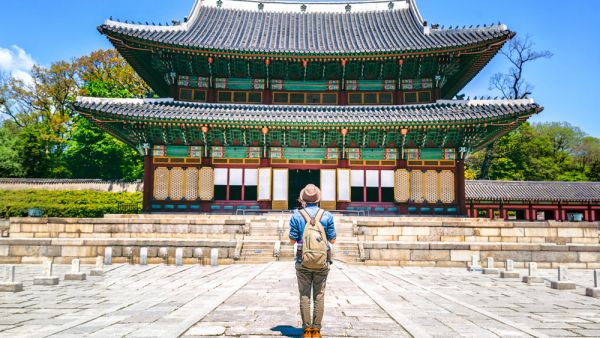South Korea on Tuesday said it will reopen a complaint at the World Trade Organization (WTO) over Japan's exports curbs that have been in place for months, further disrupting the already frayed bilateral relations with the neighbor.
Seoul dropped its WTO complaint against Tokyo's exports restriction late last year in a goodwill gesture to seek a breakthrough in the trade row that started with the latter's abrupt ban of shipping key materials to its neighbor, according to Yonhap News Agency.
The three key industrial materials are critical for chip and display industries, namely photoresist, etching gas and fluorinated polyimide.
In May, Seoul renewed its call for Tokyo to lift trade regulations against the neighbor by the end of that month, calling for Japan to make joint efforts to overcome economic fallout from the new coronavirus pandemic.
Despite repeated requests, Japan did not budge and give a clear response by the Sunday deadline.
"Japan has not been showing willingness to settle the dispute, and no progress has been made," Na Seung-sik, a trade official of the Ministry of Trade, Industry, and Energy, said.
"We have reached the conclusion that we cannot proceed with normal negotiations (with Japan), which was the premise of suspending the complaint at the WTO," the official said. "Accordingly, we will reopen the dispute-settlement process at the WTO over (Japan's) exports control of the three products."
Under the decision, South Korea plans to request the WTO open a dispute settlement panel over the trade haggling with Japan.
South Korea said the dispute settlement process at the WTO is aimed at staving off the uncertainties over the global supply chain for companies of both nations, and "proving the unlawfulness and unjustness" of Japan's actions.
Japan removed South Korea from its list of trusted partners in August, and excoriated Seoul for not effectively controlling the trade of sensitive materials that can be diverted for military use, although it never provided details on exactly how.
In response, South Korea took Tokyo off its list of trusted trade partners in an apparent tit-for-tat move. But later Seoul conditionally put off the termination of the military information-sharing pact, the General Security of Military Information Agreement (GSOMIA).
South Korea believes Japan's export curbs are merely a vendetta against a Seoul court's ruling that ordered Japanese firms to compensate victims of forced labor during Japan's 1910-45 colonial rule of the peninsula.
Tokyo partially lifted the curbs on exports of photoresist ahead of their summit in December. But no more progress has since been made.
Seoul pointed out that there have been no security-related problems reported from the three products over the past 11 months, contrary to Japan's allegations, and the country has reiterated that it has made sufficient efforts to clear out misunderstanding between the two Asian neighbors.
Seoul said it also sought to meet Japan's demands by raising the number of workers devoted to export control programs.
The trade row has been causing more damage to Tokyo's exports than the other way around. South Korea's exports to Japan slipped 6.9 percent to $28 billion in 2019 from a year earlier. Its imports from Japan fell at a wider margin of 12.9 percent to $47 billion.
For South Korea, however, removing any kinds of trade barriers is crucial as the export-reliant economy strives to overcome the pandemic-ridden crisis.
The suspended business activities and travel across the globe, caused by the COVID-19 pandemic, already have put great strains on its exports. South Korea's outbound shipments fell for the third consecutive month, plunging 23.7 percent on-year in May.
With the pandemic further souring the diplomatic trust between the two nations, the two are far from finding common ground soon.
Tokyo decided to suspend its visa-waiver program for South Korean nationals during the early stage of the COVID-19 pandemic, to which Seoul also decided to end its entry program for Japanese visitors under the principle of reciprocity.
Last week, Tokyo decided to keep the suspension until at least the end of June.







